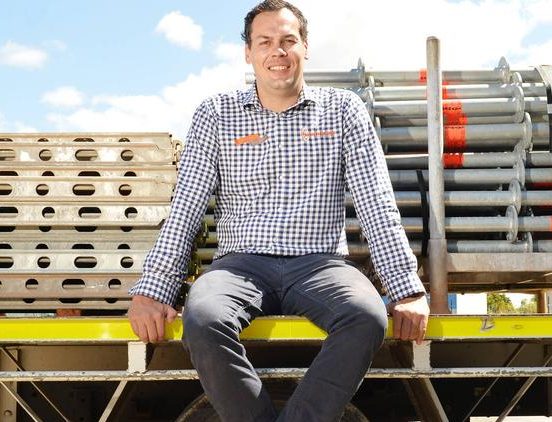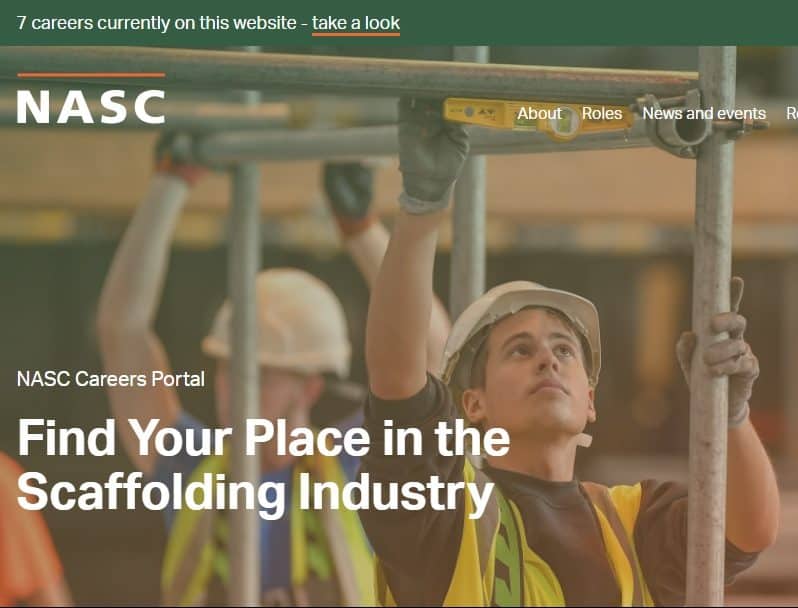There is a common misconception that if a scaffolding company specializes in one market, it is going to limit their ability to grow and scale their business. Understanding who your ideal customer is and how to best serve them will not only build stronger relationships but allow you to increase your market presence with new customers within the same market.
One of the most common mistakes many scaffolding contractors make is they don’t know enough about who their ideal customer is.
You can scroll through almost every scaffolding companies’ website and they all say the same thing. Many of the websites say they service all industries (residential, commercial and industrial) and while that may be true at different times, each industry is very different, and each has their own challenges that require a different strategic approach.
Now, take a step back and look at things through the customer’s eyes for a moment……
If a local roofing plumber requires scaffolding to replace a few meters of old gutter on a two-story house, do they want a highly complex scaffolding company who mostly works in the oil and gas sector or do they want a company who is smaller without the high price tag and complex systems?
Or….
Imagine a complex scaffolding project that requires a suspended scaffolding system hung from a bridge over a highway, does the client need a small scaffolding company with a basic safety system and little previous experience working in this type of environment or do they need a specialist company with the systems and processes to complete this type of work on a daily basis and a history of completing complex projects?
The question scaffolding businesses need to ask themselves is ‘does specializing in one area of the market mean you block yourself out of other opportunities in other markets?’ The answer is ABSOLUTELY NOT!
The most important part of running a scaffolding business is knowing who YOU are and knowing who your CUSTOMERS are.
There is no right or wrong answer or quick solution on which industries are the best (this debate has been going on for hundreds of years), they all have their pro’s and con’s and suit different scaffolding businesses in different ways.
For example, larger corporate scaffolding companies have many different levels of staff and supervision with high business overheads so it can often take a long time to make a decision and they generally charge a higher rate to cover the additional costs whereas a smaller company doesn’t have the high overheads and can charge a lower rate and still make the same profit.
The local builder replacing the gutter on a two-story house cannot justify paying the extra money for the larger corporation when the smaller company is able to make decisions quickly and provide a more personalized service, at a lower price. At the end of the day the scaffolding from both companies is going to allow the builder to complete his work safely but understanding the client will give you perspective into what is important to them.
Many business owners are afraid to say they ‘specialize’ in one area because they don’t want to close themselves off from other opportunities. Specializing in one market doesn’t mean you can never do work in other markets, it means that you know who your best customers are and you build your business strategy to take full advantage of the opportunities you have.
The larger corporate scaffolding company can still supply and install the scaffolding for the local builder but their time and resources are better suited to the complex suspended scaffolding hung from the bridge because they have the processes and resources to complete the high-risk work and generally have a financial ability to complete the higher value projects that can often take 60-90 days to be paid from the client.
Think about your organization through the eyes of your customer and be truly clear of who your “ideal” customer is. A great exercise to do is sit down with your team and profile who your ideal customer really is and ask yourselves the following questions:
- If we only had to work for one type of customer for the rest of our business lives, who would they be?
- What type of work do they do?
- What problems do they have that you can solve?
- What are the most important things they look for in a scaffolding contractor?
- What makes us different from our competition?
- Does our customer know what makes us different from our competition?
- Is our brand and marketing material the same as everyone else’s or does it separate us from the rest of the field?
If you do not know the answers to some of these questions, have a talk to your current customers and ask them why they choose you and what is most important to them. At the end of the day when all the scaffolding has been dismantled and you have left site, making sure your customer is happy and satisfied with the services you have provided is all that matters. It will be the difference between them calling you again for the next project or not.
You need to design your services and what you offer your customers to ensure that your customer walks away happy and ready to use you time and time again. If you don’t fully understand what is important to your customers, you will never fully be able to keep them happy and keep them engaged which is the key to long term success and sustainability.
If you don’t talk to your customers to understand what is most important to them, how will you ever know if you are giving them the best possible service?





